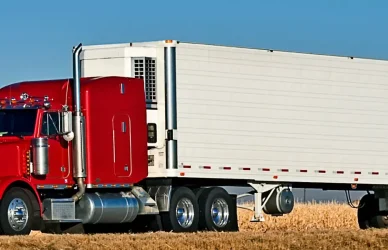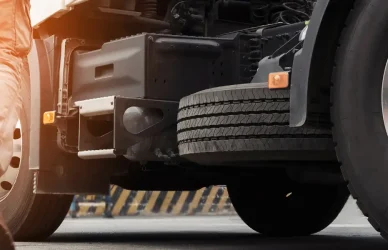The Owner-Operator Independent Drivers Association (OOIDA) has emphasized the need for future trucking regulations to prioritize safety over serving the interests of tech manufacturers. The OOIDA’s message to the U.S. Department of Transportation (DOT) underscores the critical importance of focusing on safety measures rather than catering to technology-driven agendas.
The DOT has recently launched the Transforming Transportation Advisory Comittee (TTAC). The OOIDA wants to ensure that the goal of this committee is driver and road safety.
“TTAC must ensure that future technology regulations and policies result in safe, secure, affordable, and equitable deployment for new technologies,” said OOIDA President Todd Spencer. “Further regulations should not just benefit tech manufacturers or the larger trucking companies that can purchase the equipment but must support a safe and productive workforce that improves the quality of trucking jobs.”
This aligns with the ongoing efforts of the Federal Motor Carrier Safety Administration (FMCSA) in developing rulemaking that leverages technology to enhance safety, encompassing areas such as autonomous vehicles, speed limiters, and automatic emergency braking systems. The OOIDA had comments on all of these topics.
“Despite the various claims that automated vehicles will lead to zero deaths, there continue to be real-world situations in which automation has devastatingly failed,” OOIDA wrote. “For truckers who must share the road with these vehicles to do their job, an accident caused by autonomous technology could put them out of business and cause serious injury or death.”
Moving on to speed limiters, OOIDA warned about excessive speed differentials.
“By establishing a one-size-fits-all federal mandate restricting heavy-duty CMVs to a speed that is separate from passenger vehicles, this regulation would create dangerous speed differentials between CMVs and other cars,” OOIDA wrote. “Decades of highway research shows greater speed differentials increase interactions between truck drivers and other road users, and studies have consistently demonstrated that increasing interactions between vehicles directly increases the likelihood of crashes.”
They also shared their concerns about automatic braking systems (AEB).
“While there are many operational concerns about AEB systems, truckers are especially worried about the potential for false activations,” the Association wrote. “As you can imagine, drivers are alarmed the 80,000-pound truck they are driving could unexpectedly brake to a complete stop for no reason.”
OOIDA is particularly cautious about the adoption of Beyond Compliance policies by FMCSA, urging against rewarding larger trucking companies for investing in unproven safety equipment.
“OOIDA members are concerned that Beyond Compliance has the potential to give an advantage to only those motor carriers who can afford costly new technologies,” the Association wrote. “If these motor carriers are rewarded with better public safety scores, then smaller carriers would likely see their scores downgraded without any actual change in their safety performance.”
Furthermore, OOIDA advocates for DOT to actively engage with real truckers who navigate highways daily, emphasizing the significance of listening to those with firsthand experience rather than relying solely on representatives from large fleets.
“We urge TTAC to gather input from owner-operators and independent truckers, many of whom have driven millions of miles without any crashes, in determining the most effective safety policies and programs that should be included in any of the committee’s trucking recommendations,” OOIDA wrote.
As the trucking industry evolves, OOIDA’s stance reinforces the call for regulations that prioritize the safety and well-being of drivers on the road.
Source: Land Line











